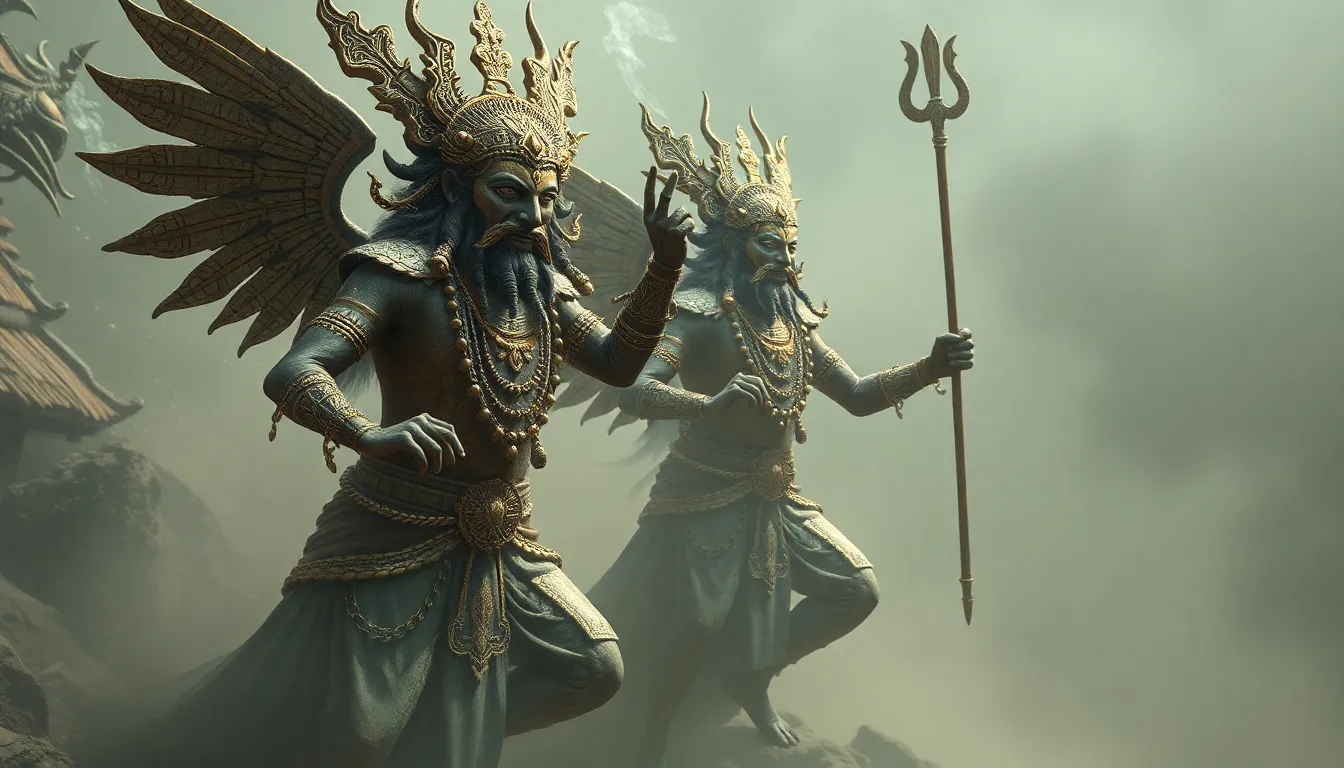The Role of Ancient Deities in Shaping Cultural Traditions
Introduction
Ancient deities are supernatural beings worshipped in various cultures across the globe, often embodying the forces of nature, societal ideals, and human experiences. These deities have played a pivotal role in shaping cultural traditions, serving as focal points for religious practices, moral guidance, and artistic expression. The influence of deities extends beyond the spiritual realm, impacting social structures, governance, and the very fabric of daily life in ancient civilizations.
Historical Context of Ancient Deities
The belief in deities dates back to prehistoric times, where early humans attributed natural phenomena to supernatural forces. Over millennia, these beliefs evolved into structured religions, each featuring a pantheon of gods and goddesses. Key civilizations that contributed to the development of ancient religions include:
- Mesopotamia: The cradle of civilization, home to gods like Marduk and Ishtar.
- Egypt: Known for its complex mythology involving deities such as Ra, Osiris, and Isis.
- Greece: Famous for its Olympian gods, including Zeus, Hera, and Athena.
- India: A rich tapestry of deities in Hinduism, such as Vishnu, Shiva, and Devi.
This historical context highlights the diversity and evolution of deities, reflecting the changing values and beliefs within societies.
Mythology and Storytelling
Myths serve as vehicles for transmitting cultural values and norms, often centered around the lives and deeds of deities. These stories provide moral lessons, explain natural phenomena, and connect communities through shared narratives. Examples of prominent myths include:
- The Epic of Gilgamesh: A Mesopotamian tale exploring themes of friendship, mortality, and divine intervention.
- The Iliad: An epic poem in Greek mythology that illustrates the wrath of Achilles and the role of the gods in human affairs.
- The Ramayana: An ancient Indian epic detailing the adventures of Lord Rama and the moral dilemmas he faces.
These myths not only entertain but also instill cultural ideals and ethical guidelines within the community.
Rituals and Worship Practices
Rituals dedicated to deities serve various purposes, from seeking favor and protection to expressing gratitude. These practices are often deeply rooted in the cultural values of a society. Common features of worship include:
- Offerings: Gifts of food, flowers, or incense to appease the deities.
- Prayers: Invocations for blessings, guidance, or forgiveness.
- Festivals: Celebrations that honor specific deities, often involving music, dance, and communal feasting.
The nature of these rituals reflects the priorities of the society, revealing their hopes, fears, and aspirations.
Deities and Social Structure
Ancient deities often influenced social hierarchy and governance. They were seen as symbols of power, and their will was believed to be reflected in the rulers of the society. Case studies include:
- Horus in Ancient Egypt: The pharaoh was considered the living embodiment of Horus, legitimizing their rule.
- The Divine Right of Kings in Medieval Europe: Monarchs claimed authority by divine appointment, linking their reign to God’s will.
- Shiva and Vishnu in Hinduism: Kings often sought to align themselves with these deities to reinforce their legitimacy and authority.
This interplay between deities and governance illustrates how religion shaped social structures and reinforced power dynamics.
Art and Architecture Inspired by Deities
Ancient deities have significantly influenced artistic expression and architectural achievements. Temples, sculptures, and paintings dedicated to gods serve not only as places of worship but also as cultural landmarks. Notable examples include:
- The Parthenon: A temple in Athens dedicated to Athena, showcasing the heights of classical architecture.
- The Great Pyramids: Tombs of pharaohs in Egypt, reflecting their divine status and connection to the gods.
- Hindu Temples: Intricately carved structures that depict various deities, illustrating rich cultural narratives.
These artistic and architectural marvels not only demonstrate the reverence for deities but also serve as a testament to the creativity and skill of ancient civilizations.
Deities in Moral and Ethical Frameworks
Ancient deities profoundly influenced moral codes and ethical behavior within societies. Often seen as arbiters of right and wrong, their commandments shaped societal laws and customs. Examples include:
- The Ten Commandments: In Judeo-Christian tradition, divine laws that guide moral conduct.
- Code of Hammurabi: A Babylonian code that was believed to be divinely inspired, establishing justice and order.
- Yamas and Niyamas: Ethical principles in Hinduism that govern personal conduct and societal behavior.
The impact of these divine commandments can still be seen in modern legal and moral systems.
Festivals and Celebrations
The connection between deities and cultural festivals is profound, with many celebrations originating from ancient religious practices. Examples of major festivals include:
- Diwali: The Hindu festival of lights, celebrating the victory of light over darkness, associated with the goddess Lakshmi.
- Oktoberfest: While modern in practice, this German festival has roots in harvest celebrations honoring deities of fertility.
- Carnival: A festival with origins in ancient Roman and pagan celebrations, linked to various deities and the arrival of spring.
These festivals reinforce cultural identity and community cohesion, celebrating the enduring legacy of ancient deities.
Modern Interpretations and Revivals
In contemporary culture, there is a resurgence of interest in ancient deities and their associated beliefs. Modern societies reinterpret these ancient practices in various ways, including:
- Paganism and Neo-Paganism: Movements that seek to revive ancient religions and practices, honoring old deities.
- Popular Culture: Movies, literature, and art often draw inspiration from ancient myths and deities, reshaping them for modern audiences.
- Spirituality: Many people today incorporate elements of ancient beliefs into their personal spiritual practices.
This revival indicates that the lessons and stories of ancient deities continue to resonate with contemporary values and aspirations.
Conclusion
The enduring legacy of ancient deities in shaping cultural traditions is evident across various aspects of society, from morality and governance to art and celebration. These deities not only provided a framework for understanding the world but also served as symbols of community identity and cultural continuity. As modern societies grapple with their roots, the relevance of these ancient beliefs remains significant, reminding us of the profound connections between the past and present.




